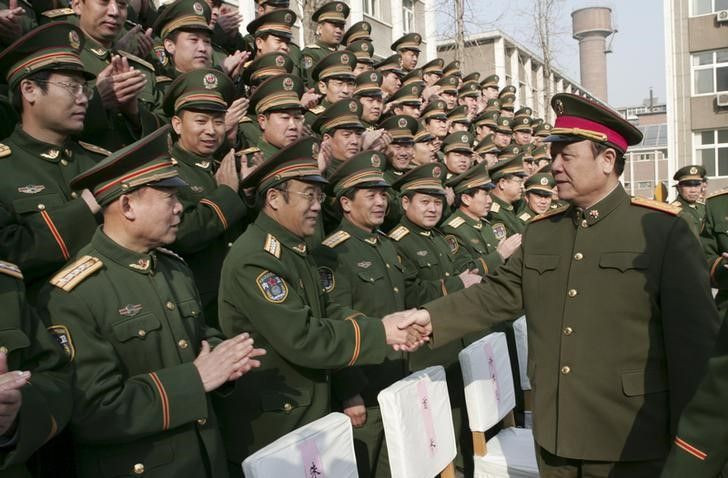Chinese Military Paper Warns A Corrupt Army Does Not Win Wars

BEIJING (Reuters) - The Chinese military's official newspaper warned on Sunday that a corrupt army would not win wars, three days after the government announced a former senior officer would be prosecuted for graft.
Serving and retired Chinese military officers as well as state media have questioned whether China's armed forces are too corrupt to fight and win a war.
President Xi Jinping has made weeding out corruption in the armed forces a top goal and several senior officers have been felled, including two of China's most senior former military officers, Xu Caihou and Guo Boxiong.
The government said on Thursday that it would prosecute Guo for corruption. Xu died ofcancer in March.
"If we allow the growth and spread of corruption, the guns will rust, the pillars will collapse," the People's Liberation Army Daily said in a front-page editorial.
"History has repeatedly proven that if corruption is not eliminated, we will defeat ourselves even before a war."
High-ranking officers such as Xu and Guo affected the morale of the people and had a severe impact on the soldiers' beliefs and convictions, the paper said.
State media had previously focused on how corruption was a key reason for China's defeat to Japan in the waning years of the Qing dynasty.
China stepped up a crackdown on corruption in the military in the late 1990s, banning the People's Liberation Army from engaging in business.
However, analysts have said the military has been involved in commercial dealings in recent years due to a lack of checks and balances.
The buying and selling of senior jobs in the military, an open secret, has worried reformers who say it leads to those with talent being cast aside and damages morale.
Xi's graft crackdown has coincided with increased efforts to modernize forces that are projecting power across the disputed waters of the East and South China Seas, although it has not fought a war in decades.
(Reporting by Sui-Lee Wee; Editing by Jeremy Laurence)
© Copyright Thomson Reuters 2024. All rights reserved.







